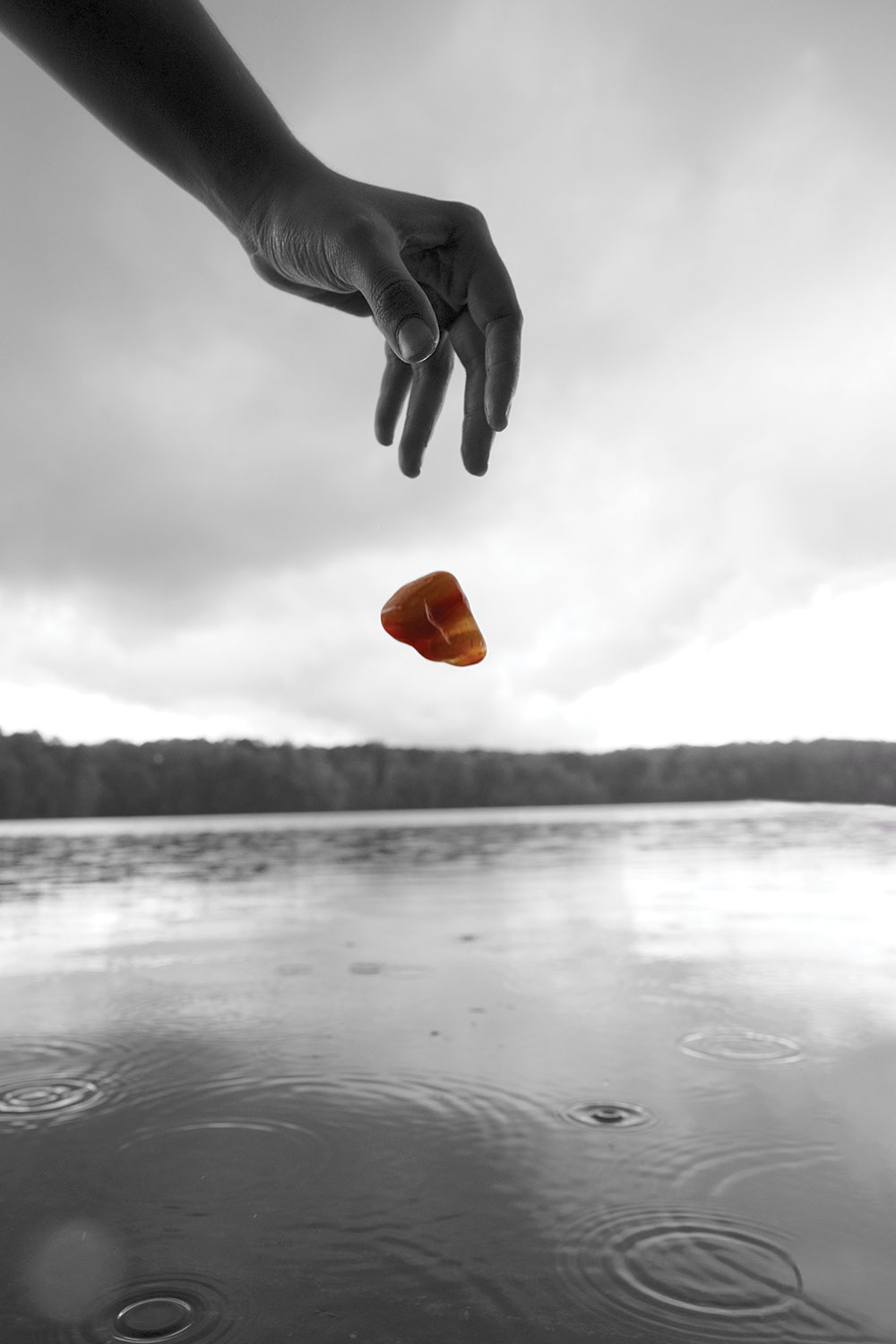
For more than forty years, members of the NC State community have gathered in February for the Sisterhood Dinner, a celebration of Wolfpack women’s accomplishments. Originally known as the Susan B. Anthony Dinner (and held near her February 15th birthday), the evening tees up Women’s History Month in March with a dinner for 600 in the Talley Student Union Ballroom, keynote and guest speakers, and a silent auction benefiting the Women’s Center.
This year’s dinner theme was “The Ripple Effect,” and guest speakers shared stories about people in their lives who’d made a big difference with a small gesture. In keeping with that theme, NC State magazine spoke with women in the NC State community about the lasting impact someone made on their lives. They spoke of supervisors who helped, friends who pitched in during tough times and strangers who offered guidance. These women, spanning from retiree to current student, all echo a similar sentiment: They wouldn’t be where they are today without the support of their community. And they are all paying it forward, multiplying the effects of one small ripple.
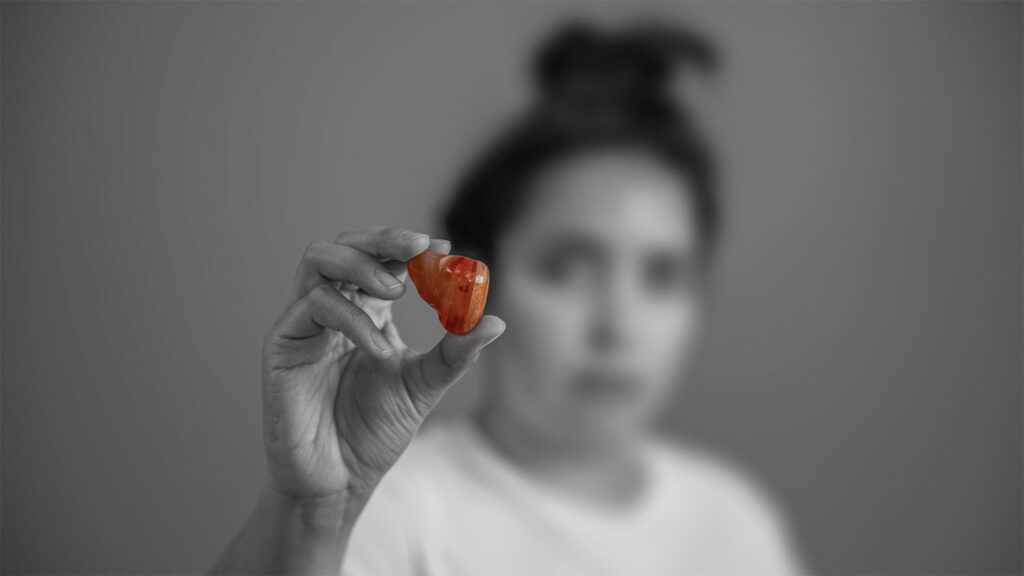

Sarah Rajala, co-founder of the NC State’s Women in Science and Engineering program, shares how she got her start in engineering when an adviser expressed his confidence in her. A LinkedIn connection helped set Naomi Pitts ’25 MS on the way to her dream job. Jessica Berrett ’20 PHD, an assistant professor of public administration at the University of Colorado, Colorado Springs, fell into her career when a temp agency placed her in a job she knew nothing about. Kayla Patterson, a current Ph.D. student, wanted to quit her master’s program to make art, until a phone call with a woman she hadn’t known made her realize she could do both. And Magreth Mushi ’16 PHD shares how a brief conversation in a cafeteria changed her life. As these Wolfpack women demonstrate, what is often a small thing to give, can be a big gift to receive.
Sarah Rajala
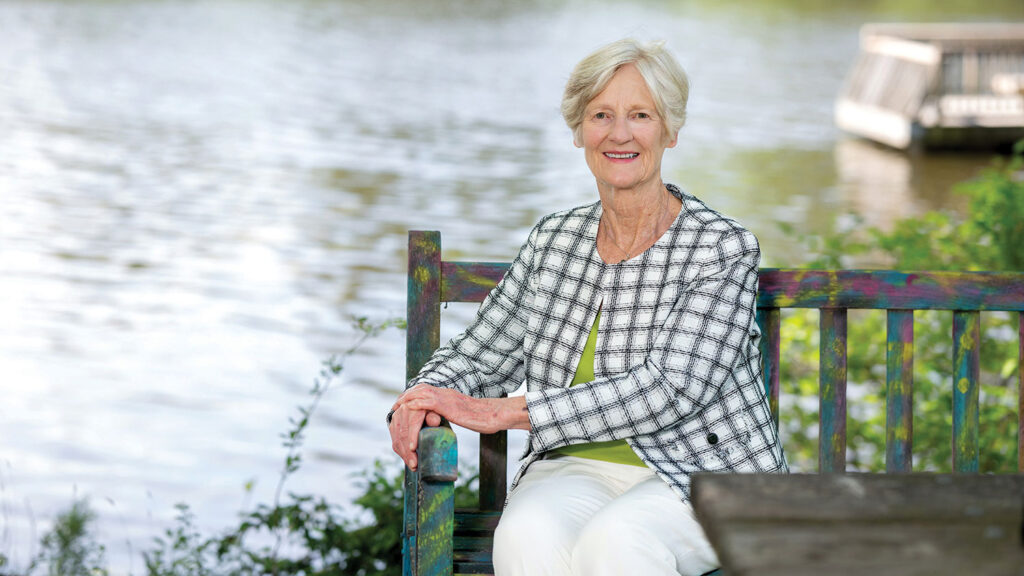
Fifty-five years ago, Sarah Rajala, a farm girl from Michigan’s Upper Peninsula, went to college to study mathematics. It was 1970, a time when most career women were either teachers, nurses or office workers. None of those options appealed to Rajala, though she admits that she wasn’t sure what she would do with a mathematics degree.
When she first arrived at Michigan Tech, Rajala didn’t even know what engineering was, but it wasn’t long before a faculty member encouraged her to study electrical engineering, saying he knew she had the ability to do it. She followed his advice and went on to have a 40-plus-year career in academia.
Rajala was the first tenure-track female faculty member in NC State’s Department of Electrical Engineering (as the Department of Electrical and Computer Engineering was known in 1979) and worked for NC State in various roles for 26 years before moving to Mississippi State to serve as a department head and dean. She eventually landed at Iowa State, where she was the dean of the College of Engineering for six years. Looking back, that adviser’s comment launched her career. “I don’t know that he ever thought of it as a ripple effect or a milestone, but it certainly made a difference in my life,” she says.
Throughout her time at NC State, Rajala says, “I looked for ways to broaden participation, especially for women and underrepresented groups, mentoring students and faculty, and looking for ways to modify policies and procedures.” Though she is especially proud of programs like NC State’s Women in Science and Engineering, which she co-founded, she says the bigger goal is bringing “broader participation to engineering for everybody.” “If you really learn about how students learn, what they need to be successful, then you can find strategies that help everyone — all the men, all the women, wherever they come from,” she says.
Rajala retired in 2019, but she’s still active in STEM leadership and currently serves as the president of ABET, an accreditation board for engineering and technology. The nonprofit focuses on institutional evaluations, but Rajala says the big-picture aspect of it is a “focus on students” and “trying to make the world we live in better.”
“I’m just one individual, one small piece,” she says. “But I have something to give back, and I want to continue to give back.”
Naomi Pitts ’25 MS
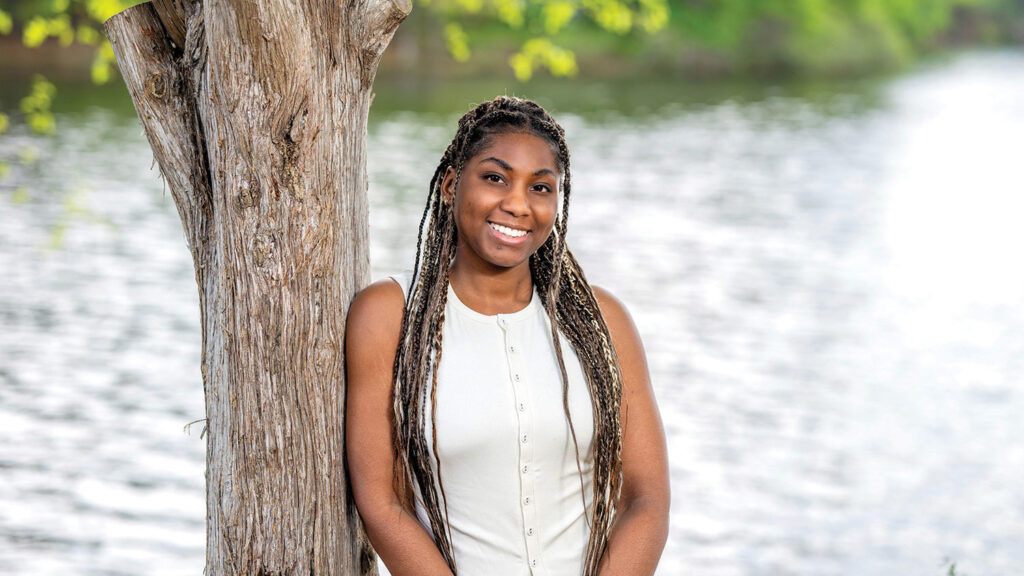
“My dream job,” Naomi Pitts ’25 MS says, “is being a scientific media personality, like the Black female version of a Bill Nye.” Armed with a master’s degree in biological and agricultural engineering and an outgoing personality, Pitts says she’s not afraid to create that position when the time is right.
Generally speaking, Pitts isn’t afraid to step out of her comfort zone and make things happen. As a graduate student, she reached out to Melody Hunter-Pillion ’92, a communications leader she found through LinkedIn. “She had no idea who I was,” Pitts says, but Hunter-Pillion responded to Pitts’ message and helped her form other connections. That interaction eventually led to Pitts publishing a story on stormwater management with PBS North Carolina.
As an undergraduate, Pitts contacted Rachael Lau, who had spoken at Auburn University, where Pitts was studying biosystems engineering. At that time, Pitts’ thought on pursuing a graduate degree was “a big no,” but once she heard Lau speak about her work in disaster management, Pitts reconsidered. Lau agreed to a call with Pitts, and it was “very open and honest” and “critical in me deciding to pursue grad school and end up at NC State,” Pitts says. And now Pitts has a full-time job as a designer with Raleigh-based engineering firm McAdams.
Pitts is actively involved in outreach and mentoring. While in graduate school she started SPROUTS, or STEM Program for Reaching Our Underrepresented Teens, an outreach organization that is primarily focused on helping children of color develop an understanding of engineering. It also forms a pipeline from underrepresented communities to STEM higher education and careers. Now that Pitts has graduated, other students and professors maintain the program.
That “legacy,” as she calls it, is important to Pitts in part because as a childhood cancer survivor, she understands how fragile life is, and she has made a practice of intentionally seeking joy. One source of that joy comes from making life better for others. “Community has been a big help for me,” Pitts says. “It’s great that we can reach out to each other to help lift each other up.”
Jessica Berrett ’20 PHD
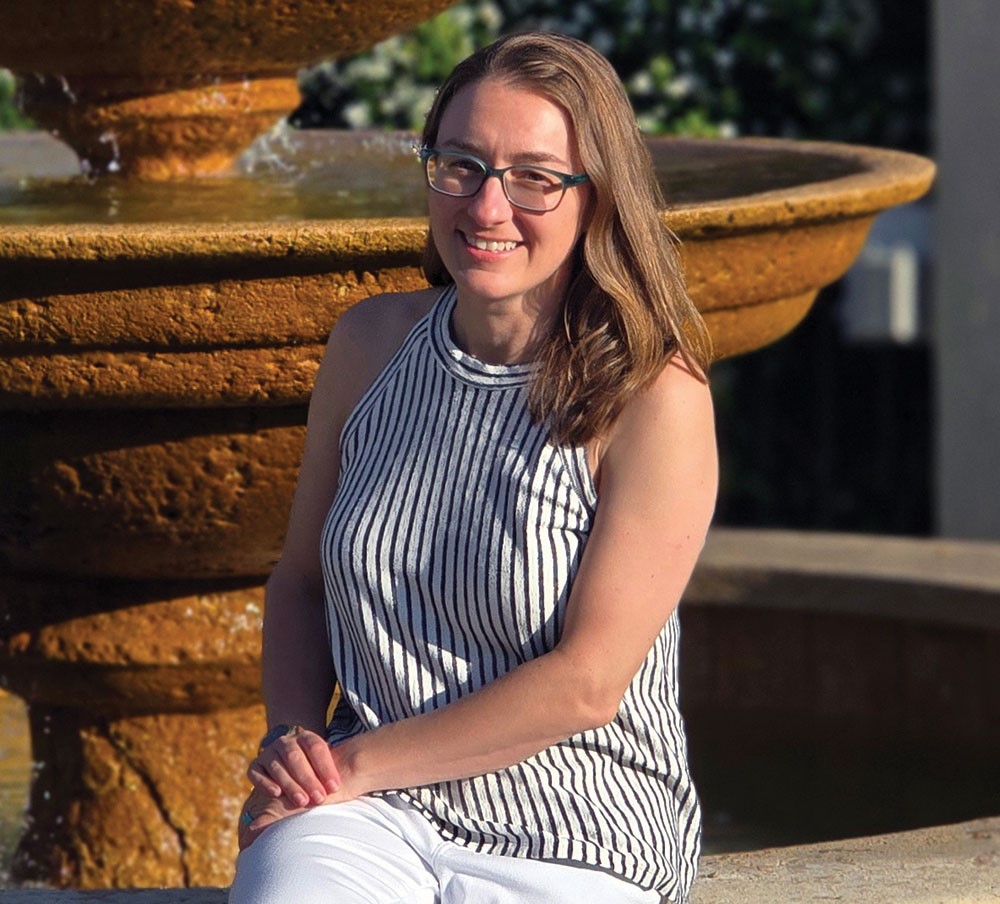
When Jessica Berrett ’20 PHD couldn’t find work after earning her bachelor’s degree in exercise science, a temp agency placed her in a part-time development job at Syracuse University. “I’ll be totally honest: I had no idea what development even meant,” Berrett says with a laugh. But her new boss, Barbara Maddocks, not only made Berrett feel comfortable, she also mentored Berrett. “She was the first person to really show me that fundraising wasn’t just about money, … that it was all about building relationships and helping connect people to causes that they care about,” Berrett says.
In time, Berrett’s temporary position became her full-time career, and she earned her MBA with a focus on nonprofit management and social entrepreneurship. Berrett was attracted to the nonprofit side partly because she’d helped her mom volunteer at a soup kitchen during her summer breaks as a kid. But it was her supervisor Maddocks who really showed Berrett that she could make a career in nonprofits.
After earning her master’s degree, Berrett started a consulting business, helping nonprofits with leadership development, strategic planning and fundraising strategy. That work led her to deep questions about the nonprofit sector. She entered NC State’s public administration Ph.D. program to dig into this work. “But little did I know that the Ph.D. [program] not only gives you the research skills,” she says, “it trains you to be a professor.” An academic career was never in Berrett’s plans, but she decided to give it a try. Today she’s an assistant professor in the College of Public Service at the University of Colorado, Colorado Springs.
Now, instead of consulting nonprofits, Berrett mentors students. “I’m really passionate about paying it forward and continuing to develop this next generation of nonprofit leaders,” she says. “There’s so much need out in the world, whether that’s in our local communities or nationally or globally, and the nonprofit sector plays such a big role in that.”
Kayla Patterson
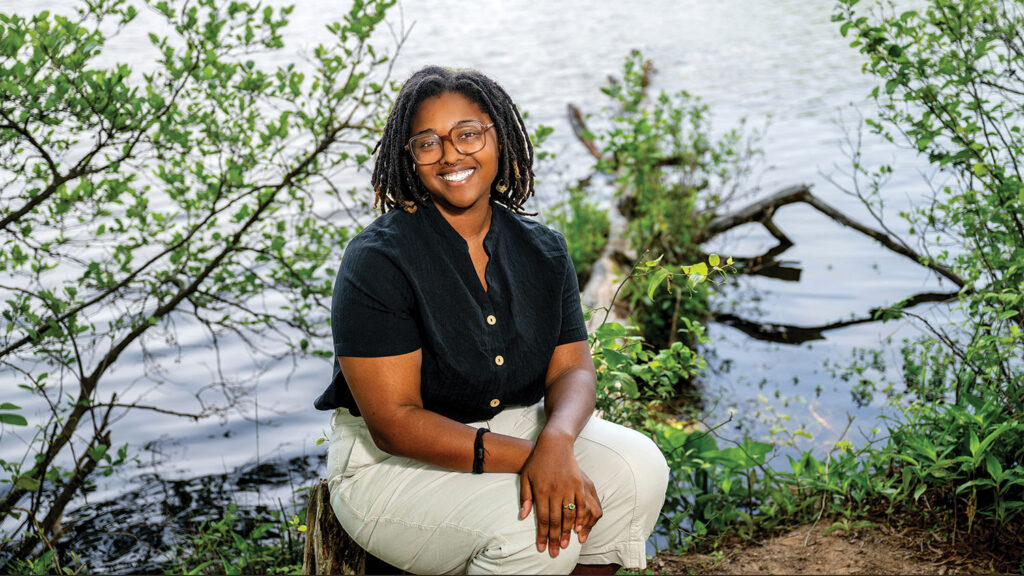
As an undergraduate and women’s basketball player at New York University, Kayla Patterson dreamed of playing basketball overseas and becoming a medical doctor. Now, pursuing her Ph.D. in parks, recreation and tourism management at NC State, she doesn’t know why that was ever her plan. “I don’t like being in a hospital,” she laughingly says. Unsure of what to do after graduation, she told her parents she wasn’t going to be a doctor, packed up her car and drove cross-country. She had to see the world, she says, before she could know how she wanted to be a part of it.
But even after she decided on her next move — a master’s degree in education from Western Carolina University — she questioned her plan. When she revealed she wanted to quit her studies and make art, her mom suggested Patterson speak with Marie Cochran, an artist and educator. Though Cochran didn’t know Patterson, she took the time to listen and encouraged Patterson to continue with her master’s degree and explore her interest in art. That phone call was pivotal for Patterson.
With Cochran’s help, Patterson curated and hosted her first art show, The BIPOC Womxn’s Art Lounge, featuring her own paintings and work of other local artists who are Black, Indigenous or people of color. The project aimed to show that art could promote civic engagement in a safe gathering space. The experience helped her connect with other artists and heightened her desire to dispel common stereotypes and bring more visibility to Black and brown people in western North Carolina. “There was this narrative that we’re not out there … [that] this is not a space that is conducive to our well-being. I don’t think that’s true at all, … We just need a space where we can come together,” Patterson says. That realization and a talk with her now-adviser convinced her that a degree in leisure studies would help her continue this advocacy work.
Her advice to others who are struggling to find their path: Identify your “why.” She says, “You have something unique, and you have something very needed, … but if we get caught up in trying to change everything, we can lose ourselves.” She adds, “And then go find your people. None of this work can happen in solitude.”
Magreth Mushi ’16 PHD
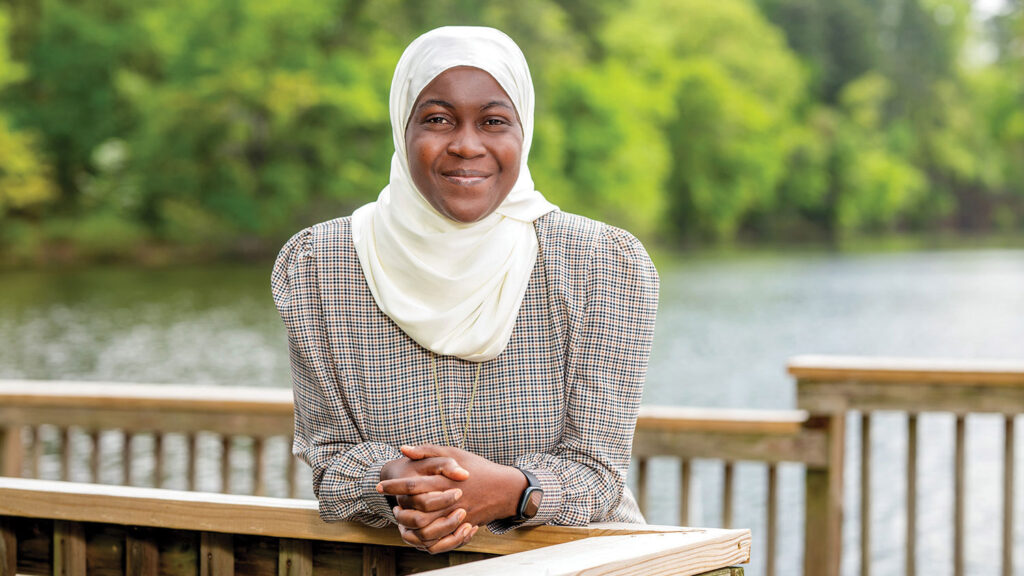
Growing up in Tanzania, Magreth Mushi ’16 PHD wanted to be an accountant, like her mother. But when her sister showed her a flyer promoting a women in engineering and computer sciences summer program, Mushi applied. The program focused on empowering girls to see themselves in a STEM career. “It inspired me,” she says, “and that’s how I started my career in computer science.” Today Mushi is the platform director of NC State’s AERPAW, which is researching how 5G wireless and drone technologies can be combined; a board member and mentor with the nonprofit GetMAGIC; and the Institute of Electrical and Electronics Engineers’ section chair for eastern North Carolina.
In the early 2010s, Mushi was working at a university in Tanzania when, one morning over breakfast, a fellow employee and former Fulbright scholar told Mushi that she’d be a good candidate for the scholarship. Mushi wasn’t familiar with the program, but she decided to give it a chance. In 2012, she arrived at NC State on a Fulbright scholarship.
To come to the United States, she had to leave her family in Tanzania. Months later, her three daughters, who ranged in age from 9 months to 5 years old, and her mother, joined her. Her mother took six months of leave from work to help the family adjust, but when she returned to Tanzania, Mushi wasn’t entirely on her own in Raleigh. “I had the help of all these women … friends [and] classmates. … So many times I wanted to quit my Ph.D. because of the hardship,” she says, but her friends pulled her through, babysitting her children and offering emotional support. “Every time I think of it, [it] brings me to tears.”
Mushi says that her entire family is the beneficiary of that goodwill: “All the education opportunities my kids are getting, … my husband got a really nice job, … the blessings, the improvement in our lives, [all] started with that Ph.D.”
When Mushi thinks of these women, she says, “I have no way of paying them back. I have to pay it forward.” When a teenager in Tanzania was paralyzed from the waist down in a car accident and confined to her home, Mushi worked to pull a group of women together to help the girl, who needed not only mentorship, but also resources and financial assistance. “Now that girl has graduated [from a] university and is in a STEM field,” Mushi says. “I’m extremely proud of her.”
Have a ripple story of your own? We’d love to hear about it. Send us a letter by visiting magazine.ncsu.edu/letter.
Photography by Marc Hall ’20 MA and Becky Kirkland
Tell Us What You Think
Do you have a personal connection to this story? Did it spark a memory? Want to share your thoughts? Send us a letter, and we may include it in an upcoming issue of NC State magazine.


